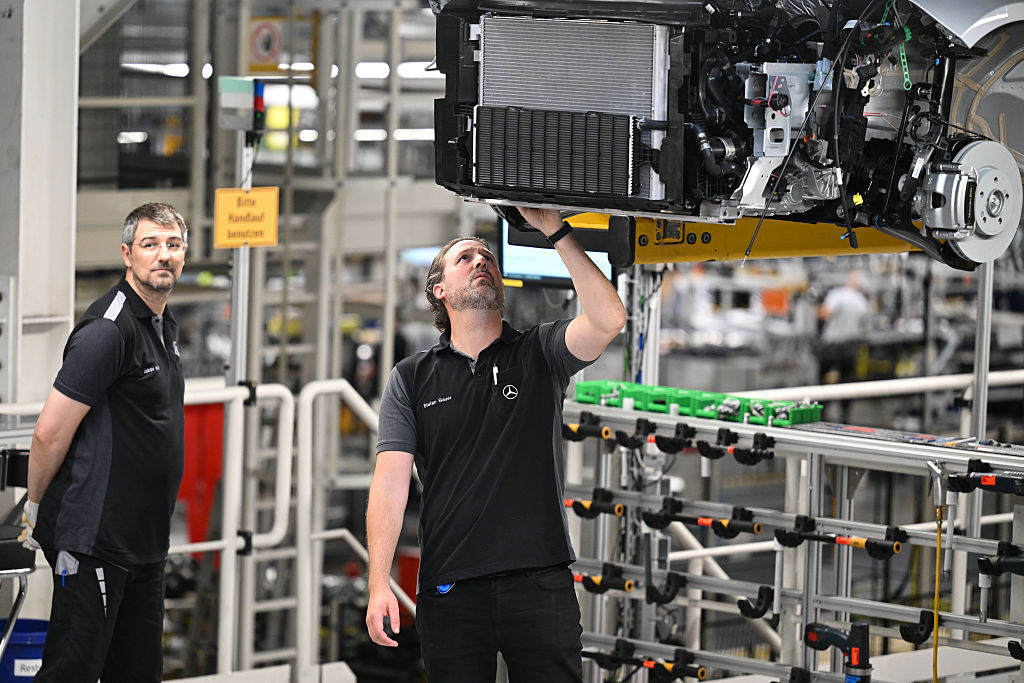European Union leaders are to tell the European Commission on Thursday whether they want to reach a quick trade agreement with the United States on terms that favour Washington or keep fighting for a better deal.
A quick deal seems to be the preferred option for most, officials and diplomats said, as the EU can then seek to address the unfavourable bias with some rebalancing measures of its own.
“I support the Commission, I support the President of the European Commission in her endeavours to make progress on competitiveness. I also support the European Commission in all its endeavours to reach a trade agreement with the USA quickly,” German Chancellor Friedrich Merz said.
“I want us to get Mercosur off the ground and conclude further trade agreements. Europe is facing decisive weeks and months,” he said.
The Commission, which negotiates trade agreements on behalf of the EU, will ask leaders of the EU’s 27 members meeting in Brussels how they want to respond to President Donald Trump’s July 9 deadline for a deal, now less than two weeks away.
The bloc has said it is striving for a mutually beneficial agreement, but as Washington looks set to stick to its 10% across-the board tariffs on most EU goods and threatening higher rates with prolonged talks, EU diplomats said a growing number of EU countries were now favouring a quick resolution.
“A trade war makes both sides of the Atlantic poorer and is just stupid. So I support the approach of the Commission president, who always kept calm and has negotiated for a result,” said Belgian Prime Minister Bart De Wever.
“If that were to end in one-sided and unfair tariffs then we have to take proportionate and very targeted countermeasures.”
The bloc is already facing U.S. import tariffs of 50% on its steel and aluminium, 25% for cars and car parts, along with a 10% tariff on most other EU goods, which Trump has threatened could rise to 50% without an agreement.
The United States’ only completed trade deal to date is with Britain, with the broad 10% tariff still in place. U.S. officials say it will not go lower for any trading partner.
Some 23 of the leaders will come to Brussels straight from the NATO summit in the Hague. Few will want to follow accord there with an economic war.
“There is a group of EU countries that want to protect companies by seemingly accepting something they have gotten used to – a 10% baseline,” one EU diplomat said.
REBALANCING MEASURES
One question EU leaders face is whether it should respond with its own measures to such a baseline tariff.
The European Union has agreed, but not imposed, tariffs on 21 billion euros of U.S. goods and is debating a further package of tariffs on up to 95 billion euros of U.S. imports. Some EU countries favour watering it down.
Among the EU rebalancing options is a tax on digital advertising, which would hit U.S. giants like Alphabet Inc’s Google, Meta, Apple, X or Microsoft and eat into the trade surplus in services the U.S. has with the EU. The bloc has a trade surplus with the U.S. in goods.
The Commission has proposed an EU-U.S. deal to cut respective tariffs on industrial goods to zero, along with potential further EU purchases of liquefied natural gas and soybeans.
Washington has shown little obvious interest, preferring to highlight items it considers as barriers, such as EU value-added tax, environmental standards and rules on online platforms, on which the EU does not want to move.
On the sidelines of the summit, EU leaders will also seek to allay the concerns of Slovakia and Hungary over ending their access to Russian gas as foreseen by the EU’s plan to phase out all Russian gas imports by the end of 2027.
EU diplomats said EU leaders’ assurances over gas should allow the two countries to back the EU’s 18th package of sanctions against Russia, which they are now blocking.
Before the start of the summit however, Slovakia’s Prime Minister Robert Fico said he would demand a delay in voting for the sanctions until Slovak concerns were addressed.
(Reuters)














